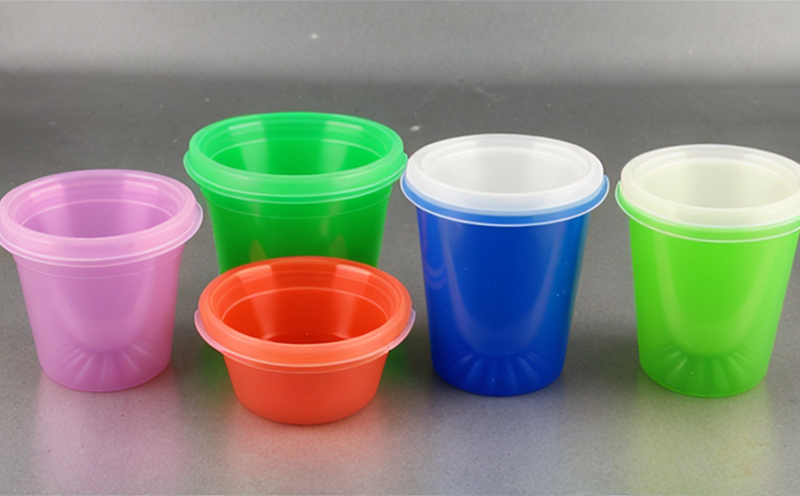JIS K 6771 Disposable Plastics Gas Transmission Testing
The JIS K 6771 standard is a critical tool in the evaluation of disposable plastics used for gas transmission. This testing method ensures that plastic materials used in disposable products, such as packaging and containers, meet stringent requirements for preventing the permeation of gases through their structure.
Disposable plastics are widely used across various sectors including healthcare, food and beverage, and consumer goods. Ensuring these products remain gas-tight is crucial to maintaining product integrity and safety. The JIS K 6771 test measures the rate at which gases pass through a specified area of plastic film or sheeting under controlled conditions. This helps in assessing the barrier properties of disposable plastics against gases like oxygen, carbon dioxide, and moisture.
The testing process involves preparing samples that are then exposed to different gas environments for a set period of time. The rate of gas transmission is quantified by measuring changes in pressure or mass over time. This method allows manufacturers to identify any potential leaks or defects in the plastic structure which could compromise product quality.
Understanding the specific requirements and challenges associated with disposable plastics is essential for accurate testing. These materials are often thin, flexible, and subject to environmental factors that can affect their performance. By adhering strictly to JIS K 6771 standards, laboratories ensure consistent and reliable test results, which in turn contribute to safer and more effective products.
For industries reliant on disposable plastics, compliance with JIS K 6771 is not just a quality assurance measure; it's a regulatory requirement. This standard plays a pivotal role in ensuring that materials used in single-use applications are safe for end-users. It also supports the development of new products by providing insights into how changes to material composition or manufacturing processes can impact gas transmission properties.
The significance of this test extends beyond compliance; it influences product design and innovation. By understanding the limitations and capabilities of disposable plastics, manufacturers can optimize their formulations and processing techniques to enhance barrier properties without sacrificing other important attributes like flexibility or cost-effectiveness.
Applied Standards
| Standard | Description |
|---|---|
| JIS K 6771-3:2009 | Test Method for Determination of Gas Transmission Rate Through Plastic Film and Sheets |
| JIS K 6771-4:2018 | Test Method for Determination of Water Vapor Permeability of Plastic Film and Sheets |
Quality and Reliability Assurance
- Strict adherence to JIS K 6771 specifications for temperature, humidity, and gas composition.
- Use of calibrated equipment to ensure accurate measurement of gas transmission rates.
- Regular calibration and validation of test apparatus to maintain consistent results.
- Data analysis using statistical methods to confirm reproducibility and reliability.
Competitive Advantage and Market Impact
The ability to accurately test the gas transmission properties of disposable plastics provides a significant competitive edge in today's market. Compliance with JIS K 6771 not only ensures product safety but also enhances brand reputation by demonstrating commitment to quality.
By offering precise and reliable testing services, laboratories support manufacturers in meeting regulatory requirements while also fostering innovation. Companies that can consistently deliver products with superior gas barrier properties are better positioned to attract customers seeking high-quality disposable solutions.
The demand for environmentally friendly and safe disposable plastics continues to grow as consumers become more aware of the impact of single-use items on the environment. Laboratories specializing in JIS K 6771 testing play a crucial role in driving this trend by providing robust data that supports sustainable product development.





